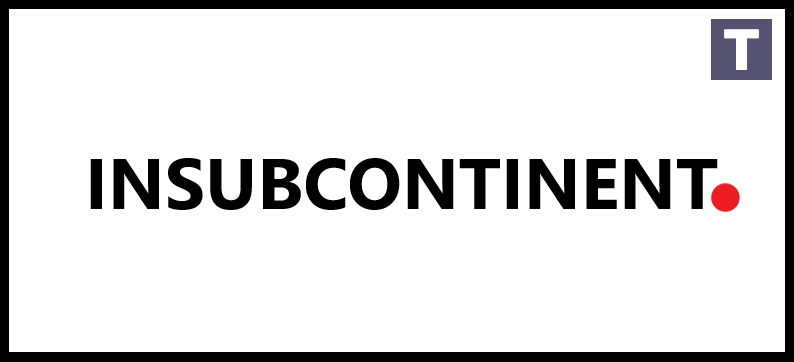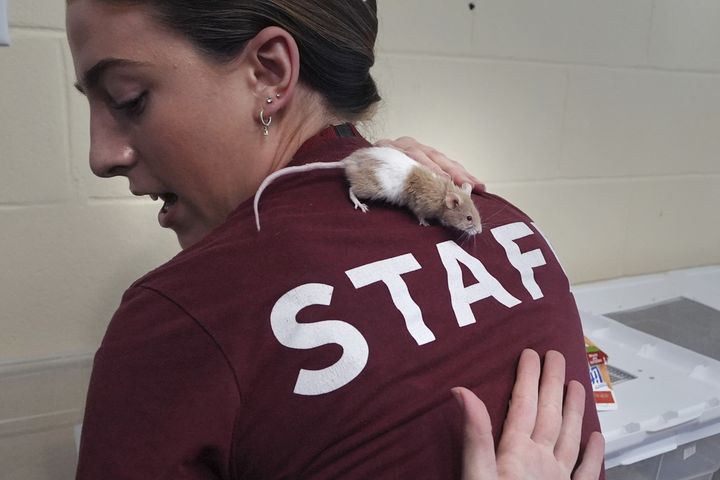Music
Trailers
DailyVideos
India
Pakistan
Afghanistan
Bangladesh
Srilanka
Nepal
Thailand
StockMarket
Business
Technology
Startup
Trending Videos
Coupons
Football
Search
Download App in Playstore
Download App
Best Collections
Technology
TechCrunch Tel Aviv, our inaugural one-day conference centered on boundary-pushing mobile technology, takes place on June 7, 2018. Thereamazing mobile tech coming out of Israel; we&re excited to dive in, and we want you to join us. But herethe thing. You have just 48 hours left to score the early-bird ticket price — 265 ILS. Don&t waste another minute.Buy your tickets now.
We&re thrilled that drone masters Yariv Bash of Flytrex (the worldfirst on-demand drone delivery service) and Ran Krauss of Airobotics (a pilotless drone solution), will grace the TC stage to discuss the future of commercial drones. Thatsome leading-edge technology right there, and itjust a one example of the great speakers you can expect to hear at TC Tel Aviv.
Want a few more We&ve got you covered.
- Liad Itzhakof HERE Technologies andOren Shovelof Via will talk about the effect that mobility-as-a-service will have on autonomous cars
- Ryan Sturgillof Gaza Sky Geeks will joinFadi Swidenof Hybrid to discuss Arab-Israeli innovation
- Omer David Kailafof Innoviz Technologies andRani Wellingsteinof Oryx Vision will talk about the technology behind the &eyes& and &ears& of cars
- Chemi Peres of Pitango Venture Capital will join Mike Granoffof Maniv Mobility andYahal Zilka of Magma Venture Partners to discuss investing in Israel
Drum roll, please — for the first time ever,Startup Alleymakes an appearance in Tel Aviv, and you don&t want to miss the broad range of tech on display. The Alley goes beyond mobile tech and includes more than 200 early-stage startups working on products and services in cybersecurity, AR/VR, robotics, fintech, biotech, artificial intelligence, blockchain and more.
But hold on now. Why not consider exhibiting in Startup Alley Itthe perfect way to place your company in front of influential tech leaders, prospective customers, investors and media. The day-long Startup Demo ticket costs 1,700 ILS and includes two tickets to TechCrunch Tel Aviv 2018, a demo table, Wi-Fi, power, linens and a branded table-top sign. You can secure your exhibit table right here.
TechCrunch Tel Avivtakes place on June 7, 2018 at the Tel Aviv Convention Center, Pavilion 10.That sound you hear is the 48-hour clock ticking. Get your early-bird tickets today.
- Details
- Category: Technology
Read more: Only 48 hours left to get early bird tickets for TC Tel Aviv
Write comment (90 Comments)In a major policy change for its US operations, Uber has announced itending mandatary arbitration for individual claims of sexual assault or sexual harassment by Uber drivers, riders or employees.
It is also ending the requirement that victims sign a confidentiality provision preventing them from speaking about the sexual assault or sexual harassment they suffered —saying survivors will now have the option to settle their claims with Uber without having to agree to being publicly silenced in order to do so.
Last month a group of women alleging sexual violence from Uber drivers sent an open letter to the companyboard asking to be released fromthe mandatory arbitration clause in the Uber appterms of service.
Former Uber engineer Susan Fowler — who was instrumental in highlighting internal problems with sexual harassment and sexism at Uber when she blogged about her experiences at the company last year— also urged CEODara Khosrowshahi to end the policy. And in aTwitter exchangein March Khosrowshahi signaled he was willing to consider ending forced arbitration. &I will take it seriously, but we have to take all of our constituents into consideration,& he wrote to Fowler then.
Concerns about safety and Uberattitude to reporting serious crimes were also among the reasons identified by Londontransport regulator for withdrawing Uberlicense to operate in the UK capitallast September.
Although safety transparency measures also being announced by Uber today appear limited to the US market for now.Uber has committed to publishing what it describes as a &safety transparency report& — which it says will include data on sexual assaults and &other incidents& that occur as a result of activity on its platform.
Announcing the moves in a blog posttoday, entitled ‘Turning the lights on&, Uberchief legal officer Tony West writes that the company has committed to doing &the right thing& under its new CEO — a new attitude which requires &three key elements: transparency, integrity, and accountability&.
Describing sexual violence as &a huge problem globally&, he continues:&The last 18 months have exposed asilent epidemicof sexual assault and harassment that haunts every industry and every community. Uber is not immune to this deeply rooted problem, and we believe that it is up to us to be a big part of the solution.&
Commenting on Uberpolicy changes to end mandatory arbitration, Jeanne Christensen, a partner at New York based law firm Wigdor LLP, whichfiled a class action lawsuit against Uber last year on behalf of women who said they were assaulted or raped by Uber drivers,described it as a critical step to &reduce future suffering by women passengers&.
But she also flagged Uberdecision to not end forced arbitration for groups ofvictims acting on a class basis — saying this shows the company is ¬ fully committed to meaningful change&.
&Victims are more likely to come forward knowing they can proceed as a group. This is the beginning of a longer process needed to meaningfully improve safety,& Christensen added in a statement.
We&ve reached out to Uber for comment on why itnot ending mandatory arbitration for group claims.
On the decision to end mandatory arbitration for individuals, West writes: &We have learned itimportant to give sexual assault and harassment survivors control of how they pursue their claims. So moving forward, survivors will be free to choose to resolve their individual claims in the venue they prefer: in a mediation where they can choose confidentiality; in arbitration, where they can choose to maintain their privacy while pursuing their case; or in open court. Whatever they decide, they will be free to tell their story wherever and however they see fit.&
On the changes to confidentiality provisions, he says: &Divulging the details of what happened in a sexual assault or harassment should be up to the survivor, not us.&
And on the new transparency report, West admits Uber struggled with the decision to publish data — saying this is &because data on safety and sexual assaults is sparse and inconsistent&, and there is no uniform industry standard for reporting it.
He also flags the problem of crimes of sexual violence being underreported.
However, in the end, Uber has decided it will go ahead and publish data. Although itnot clear when the first report will go live (we&ve also asked about that).
&We&re working with experts in the field to develop a taxonomy to categorize the incidents that are reported to us,& adds West. &We hope to open-source this methodology so we can encourage others in the ridesharing, transportation and travel industries, both private and public, to join us in taking this step. We know that a project of this magnitude will take some time, but we pledge to keep you updated along the way.&
Uber isn&t giving a timeline for publishing the first report at this stage but a spokeswoman emphasized the process will take time owing to complexities involved with categorizing reports of incidents, and the need to develop a methodology for reporting the data — working with external experts.
On class actions, the spokeswoman said the vast majority of the claims Uber receives are from individuals, saying it believes that a modified confidentiality option and choice of venue are the core issues for individuals, whereas law firms themselves can be incentivized to drive class actions for a profit motive.
We&ve also reached out to Uber ride-hailing rival Lyft to ask if it will be making any similar policy changes in the U.S. Lyftterms continue to require users submit any claims against it to &binding and final arbitration on an individual basis&.
This report was updated with additional comment
- Details
- Category: Technology
Read more: Uber ends policy of forced arbitration for individual sexual assault claims
Write comment (90 Comments)Veridium Labs has been trying to solve a hard problem about how to trade carbon offset credits in an open market. The trouble is that more complex credits don&t have a simple value like a stock, and there hasn&t been a formula to determine their individual value. That has made accounting for them and selling them on open exchanges difficult or impossible. Ita problem Veridium believes they can finally solve with tokens and the blockchain.
This week the company announced a partnership with IBM to sell carbon offset tokens on the Stellar blockchain. Each company has a role here with Veridium setting up the structure and determining the value formula. Stellar acts as the digital ledger for the transactions and IBM will handle the nuts and bolts of the trade activity of buying, selling and managing the tokens.
Todd Lemons, CEO and cofounder of Veridium Labs, which is part of a larger environmental company called EnVision Corporation, says that even companies with the best of intentions have struggled with how to account for the complex carbon credits. There are simpler offset credits that are sold on exchanges, but ones that seek to measure the impact of a product through the entire supply chain are much more difficult to determine. As one example, how does a company making a candy bar source its cocoa and sugar. Itnot always easy to determine through a web of suppliers and sellers.
Moving forward
To partly solve this problem, another Envision company, InfiniteEARTH developed a way to account for them called the Redd+ forest carbon accounting methodology. It is widely accepted to the point that it has been incorporated in the Paris Climate Agreement, but it doesn&t provide a way to turn the credits into what are called fungible assets, that is an easily tradable one. The problem is the value of a given credit shifts according to the overall environmental impact of producing a good and getting it to market. That value can change according to the product.
Jared Klee, blockchain manager for token initiatives at IBM, says that buying and accounting for Redd+ credits on the company balance sheet has been a huge challenge for organizations. &Ita major pain point. Today Redd+ credits are over the counter assets and there is no central exchange,& he said. That means they are essentially one-off transactions and the company is forced to hold these assets on the books with no easy way to account for their actual value. That often results in a big loss, he says, and companies are looking for ways to comply in a more cost-efficient way.
Putting it together
The three companies — Veridium, IBM and Stellar — have come together to solve this problem by creating a digital token that acts as a layer on top of the carbon credit to give it a value and make it easier to account for. In addition, the tokens can be bought and sold on the blockchain.
The blockchain provides all the usual advantages of a decentralized record keeping system, immutable records and encrypted transactions.
Veridium is working on the underlying formula for token valuation that measures &carbon density per dollar times product group,& Lemons explained. &That can be coded into a token and carried out automatically,& he added. They are working with various world bodies like the United Nations and The World Resource Institute to help figure out the values for each product group.
All of the details are still being worked out as the idea works its way through the various regulatory bodies, but the companies hope to be making the tokens available for sale some time later this year.
Ultimately this is about finding ways to help businesses comply with environmental initiatives and remove some of the complexity inherent in that process today. &We hope the tokens will provide less friction and a much higher adoption rate,& Lemons said.
- Details
- Category: Technology
Read more: Veridium Labs teams with IBM and Stellar on carbon credit blockchain
Write comment (94 Comments)Jyoti Bansal, the founder of AppDynamics, which he sold for $3.7 billion just as it was about to go public, andJohn Vrionis, a former venture partner at Lightspeed, where he invested in companies like MuleSoft, Nimble Storage and BansalAppDynamics, today announced the launch of Unusual Ventures, a new $160 million seed fund.
Vrionis will take board seats and handle the day-to-day activities of the fund while Bansal will focus on mentoring the startups (and his own startups).
According to Bansal and Vrionis, early-stage investing is at an interesting stage. They argue that many of the larger funds have moved to larger investments and many of the seed-stage investors aren&t necessarily in a position to really help fledgling entrepreneurs through the hardest few years of building their companies. And when larger funds make seed investments, they often can&t provide the right kind of resources to help these companies.
&If you look at the mega-funds today, the model has really changed over the last years,& Vrionis told me. &Now the funds say they do everything from pre-seed to pre-IPO rounds.& But while VCs tell founders to focus, the VCs themselvesdon&t.
So to better help entrepreneurs, Bansal and Vrionis decided to tackle the issue from first principles. They concluded that what founders really need is help to learn fast. &In a two-year period, you have to learn so much,& Bansal explained. &How to lead people, how to inspire people, how to define product/market fit, packaging, pricing.&
To tackle this issue, Unusual Ventures will offer regular classes for its entrepreneurs, something that many accelerators also do, but with a few twists. The so-called Unusual Ventures Academy will consist of two cohorts a year, with eight companies each. The plan is to bring a group of master practitioners who, once a week, will lead three- or four-hour in-person sessions over the course of a six-week span. Vrionis noted that the focus of every session will be on one particular kind of challenge that startups face and that founders will have to create their own solutions — and then teach them to the other participants.
Unusual Ventures will also offer its startups a lot of hands-on support. The fund will have its own recruitment team, for example, to help founders hire the right engineers right from the get-go, and offer legal help and other infrastructure services so that founders can focus on building the product.
One other interesting twist here is about how the fund itself is funded. Bansal and Vrionis told me they were fortunate enough to be able to rethink this model, too. So the fundpartners aren&t the traditional insurance companies and pension plans, but nonprofits. Most of these are historically black colleges and universities, foundations, endowments and health-related institutions. When a company has a successful exit, &who does the funding go to in the end,& Bansal asked. &We want it to go to causes that we care about. We want to give it to those who don&t usually participate in the Silicon Valley wealth creation.&
The two co-founders also stressed they are looking for unusual funders, too. &We really encourage and welcome unusual backgrounds, histories, mindsets, ideas, people,& Bansal said.
So far, the fund has made four investments (two in the enterprise space, one consumer marketplace play, and one company in the crypto space). They are still at a very early stage and it looks like they aren&t quite ready for the limelight yet.
- Details
- Category: Technology
Read more: AppDynamics founder launches Unusual Ventures, a new $160M seed-stage fund
Write comment (98 Comments)Good Eggs, the food delivery service that promises &absurdly fresh& groceries and meal kits, has raised $50 million in new funding.
That looks like a big turnaround from 2015, when the company had multiple rounds of layoffs, shut down operations outside of San Francisco and brought on Bentley Hall (an executive from Plum Organics and Clif Bar) as its new CEO.
Hall said that after he took over, he spent months focused on retooling the fundamental business: &We didn&t have a single conversation about growth.& Since then, he said the company started looking at &growth with purpose& and in 2018 is ready for &thoughtful, measured expansion.&
&The first change is, we realized that we were a food company enabled by technology, versus a technology company that sells food,& Hall said.
That might sound vague, but it led to more concrete &trickle effects,& like quadrupling the number of products that Good Eggs sells to more than 1,000. Hall said the service has become people&primary food supplier,& with the average customer ordering from Good Eggs more than once a week. That also meant the company had to shift from next-day to same-day delivery, which he described as &table stakes in the future.&
At the same time, Hall said the company maintains its &rigorous sourcing criteria,& with 70 percent of its products sourced locally. And thanks to the Good Eggs model, where the company buys directly from local farmers and producers, customers don&t have to worry about sending a delivery person to the supermarket only to discover that the product they want isn&t available.
The new funding comes from was led by Benchmark, with additional participation from existing investors Index Ventures, Obvious Ventures, S2G Ventures, DNS Capital, Uprising and Collaborative Fund. BenchmarkBill Gurley is joining Good Eggs& board of directors.
&Our team was deeply impressed by the operational discipline that Bentley and the team at Good Eggs have implemented to transform this business,& Gurley said in the funding announcement. &We made a study of what Good Eggs has achieved and believe the business is very well positioned to capture and scale the growing market of people who are passionate about the quality and provenance of the food they consume. Ita massive opportunity.&
Good Eggs delivery remains limited to the San Francisco Bay Area, but the company said it will be expanding throughout the region and adding capacity, then launch in Southern California next year.
&We&re not going to grow where we sacrifice the foundation we&ve worked so hard to build, and we&re not going to grow in a way that sacrifices the customer experience,& Hall said. &We&ll grow as quickly as we can while maintaining those two principles. For us, that means expanding slowly and thoughtfully throughout the West Coast.&
And while Hall was happy to frame the Good Eggs story as a turnaround, he didn&t want to take all the credit for it.
&This is such a team effort,& he said. &I know this usually gets told as somebody came in and turned it around, but this was across the entire team. Our 260, 270 hourly employees, they get as much if not more of the credit as I do.&
- Details
- Category: Technology
Read more: Good Eggs raises $50M and eyes West Coast expansion
Write comment (93 Comments)Russian cybersecurity software makerKaspersky Labshas announced it will be moving core infrastructure processes to Zurich, Switzerland, as part of a shift announced last year to try to win back customer trust.
It also said itarranging for the process to be independently supervised by a Switzerland-based third party qualified to conduct technical software reviews.
&By the end of 2019, Kaspersky Lab will have established a data center in Zurich and in this facility will store and process all information for users in Europe, North America, Singapore, Australia, Japan and South Korea, with more countries to follow,& it writes in a press release.
&Kaspersky Lab will relocate to Zurich its ‘software build conveyer& — a set of programming tools used to assemble ready to use software out of source code. Before the end of 2018, Kaspersky Lab products and threat detection rule databases (AV databases) will start to be assembled and signed with a digital signature in Switzerland, before being distributed to the endpoints of customers worldwide.
&The relocation will ensure that all newly assembled software can be verified by an independent organization, and show that software builds and updates received by customers match the source code provided for audit.&
InOctoberthe company unveiled what it dubbed a &comprehensive transparency initiative& as it battled suspicionthat its antivirus software had been hacked or penetrated by the Russian government and used as a route for scooping up US intelligence.
Since then Kaspersky hasclosed its Washington D.C. office— after a ban on its products for U.S. government use which was signed into law by president Trump in December.
Being a trusted global cybersecurity firm and operating core processes out of Russia where authorities might be able to lean on your company for access has essentially become untenable as geopolitical concern over the Kremlinonline activities has spiked in recent years.
Yesterday the Dutch government became the latest public sector customer to announce a move away from Kaspersky products (via Reuters) — saying it was doing so as a &precautionary measure&, and advising companies operating vital services to do the same.
Responding to the Dutch governmentdecision, Kaspersky described it as &very disappointing&, saying its transparency initiative is &designed precisely to address any fears that people or organisations may have&.
&We are implementing these measures first and foremost in response to the evolving, ultra-connected global landscape and the challenges the cyber-world is currently facing,& the company adds in a detailed Q-A about the measures. &This is not exclusive to Kaspersky Lab, and we believe other organizations will in future also choose to adapt to these trends. Having said that, the overall aim of these measures is transparency, verified and proven, which means that anyone with concerns will now be able to see the integrity and trustworthiness of our solutions.&
The core processes thatKaspersky will move from Russia to Switzerland over this year and next — include customer data storage and processing (for &most regions&); and software assembly, including threat detection updates.
As a result of the shift it says it will be setting up &hundreds& of servers in Switzerland and establishing a new data center there, as well as drawing on facilities of a number of local data center providers.
Kaspersky is not exiting Russia entirely, though, and products for the Russian market will continue to be developed and distributed out of Moscow.
&In Switzerland we will be creating the ‘worldwide& (ww) version of our products and AV bases. All modules for the ww-version will be compiled there. We will continue to use the current software build conveyer in Moscow for creating products and AV bases for the Russian market,& it writes, claiming it is retaining a software build conveyor in Russia to &simplify local certification&.
Data of customers from Latin American and Asia (with the exception of Japan, South Korea and Singapore) will also continue to be stored and processed in Russia — but Kaspersky says the list of countries for which data will be processed and stored in Switzerland will be &further extended, adding: &The current list is an initial one…and we are also considering the relocation of further data processing to other planned Transparency Centers, when these are opened.&
Whether retaining a presence and infrastructure in Russia will work against Kasperskywider efforts towin back trust globally remains to be seen.
In the Q-A it claims: &There will be no difference between Switzerland and Russia in terms of data processing. In both regions we will adhere to our fundamental principle of respecting and protecting peopleprivacy, and we will use a uniform approach to processing users& data, with strict policies applied.&
However other pre-emptive responses in the document underline the trust challenge it is likely to face — such as a question asking what kind of data stored in Switzerland that will be sent or available to staff in its Moscow HQ.
On this it writes: &All data processed by Kaspersky Lab products located in regions excluding Russia, CIS, Latin America, Asian and African countries, will be stored in Switzerland. By default only aggregated statistics data will be sent to R-&D in Moscow. However, Kaspersky Lab experts from HQ and other locations around the world will be able to access data stored in the Transparency Center. Each information request will be logged and monitored by the independent Swiss-based organization.&
Clearly the robustness of the third party oversight provisions will be essential to its Global Transparency Initiative winning trust.
Kasperskyactivity in Switzerland will be overseen by an (as yet unnamed) independent third party which the company says will have &all access necessary to verify the trustworthiness of our products and business processes&, including: &Supervising and logging instances of Kaspersky Lab employees accessing product meta data received through KSN [Kaspersky Security Network] and stored in the Swiss data center;and organizing and conducting a source code review, plus other tasks aimed at assessing and verifying the trustworthiness of its products.
Switzerland will also host one of the dedicated Transparency Centers the company said last year that it would be opening as part of the wider program aimed at securing customer trust.
It expects the Swiss center to open this year, although the shifting of core infrastructure processes won&t be completed until Q4 2019. (It says on account of the complexity of redesigning infrastructure thatbeen operating for ~20 years — estimating the cost of the project to be $12M.)
Within the Transparency Center, which Kaspersky will operate itself, the source code of its products and software updates will be available for review by &responsible stakeholders& — from the public and private sector.
It adds that the details of review processes — including how governments will be able to review code — are ¤tly under discussion& and will be made public&as soon as they are available&.
And providing government review in a way that does not risk further undermining customer trust may also provide a tricky balancing act for Kaspersky, given multi-directional geopolitical sensibilities, so the devil will be in the policy detail vis-a-vis &trusted& partners and whether the processes it deploys can reassure all of its customers all of the time.
&Trusted partners will have access to the companycode, software updates and threat detection rules, among other things,& it writes, saying the Center will provide these third parties with: &Access to secure software development documentation;Access to the source code of any publicly released product;Access to threat detection rule databases;Access to the source code of cloud services responsible for receiving and storing the data of customers based in Europe, North America, Australia, Japan, South Korea and Singapore; Access to software tools used for the creation of a product (the build scripts), threat detection rule databases and cloud services&; along with &technical consultations on code and technologies&.
It is still intending to open two additional centers, one in North America and one in Asia, but precise locations have not yet been announced.
On supervision and review Kaspersky also says that ithoping to work with partners to establish an independent, non-profit organization for the purpose of producing professional technical reviews of the trustworthiness of the security products of multiple members — including but not limited to Kaspersky Lab itself.
Which would certainly go further to bolster trust.Though it has nothing firm to share about this plan as yet.
&Since transparency and trust are becoming universal requirements across the cybersecurity industry, Kaspersky Lab supports the creation of a new, non-profit organization to take on this responsibility, not just for the company, but for other partners and members who wish to join,& it writes on this.
Next month italso hosting an online summit to discuss &the growing need for transparency, collaboration and trust& within the cybersecurity industry.
Commenting in a statement, CEO Eugene Kaspersky, added:&In a rapidly changing industry such as ours we have to adapt to the evolving needs of our clients, stakeholders and partners. Transparency is one such need, and that is why we&ve decided to redesign our infrastructure and move our data processing facilities to Switzerland. We believe such action will become a global trend for cybersecurity, and that a policy of trust will catch on across the industry as a key basic requirement.&
- Details
- Category: Technology
Read more: Kaspersky to move some core infrastructure out of Russia to fight for trust
Write comment (92 Comments)Page 5395 of 5614

 6
6











